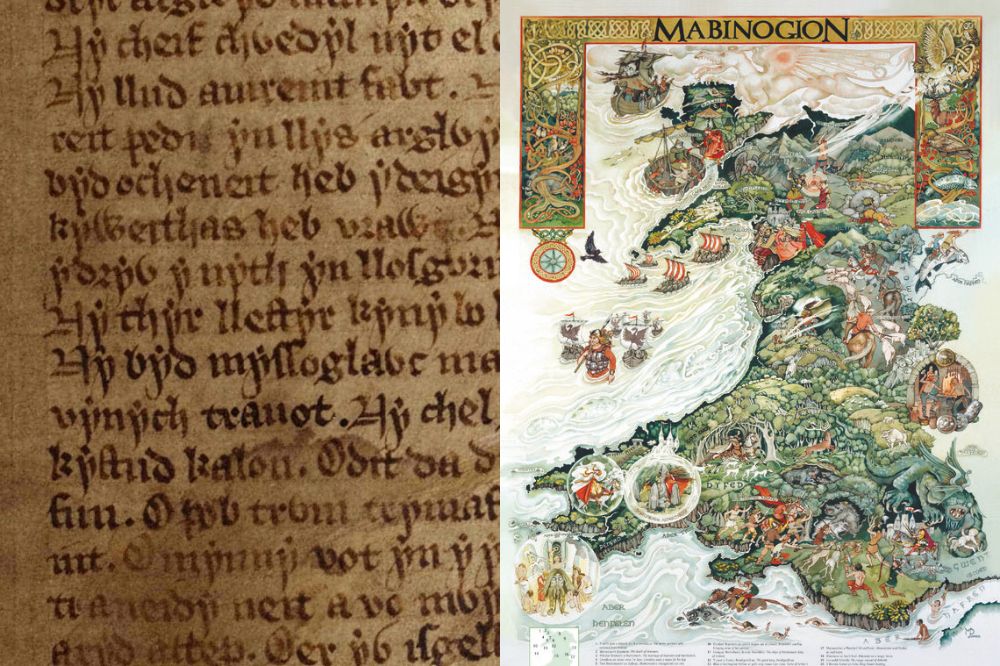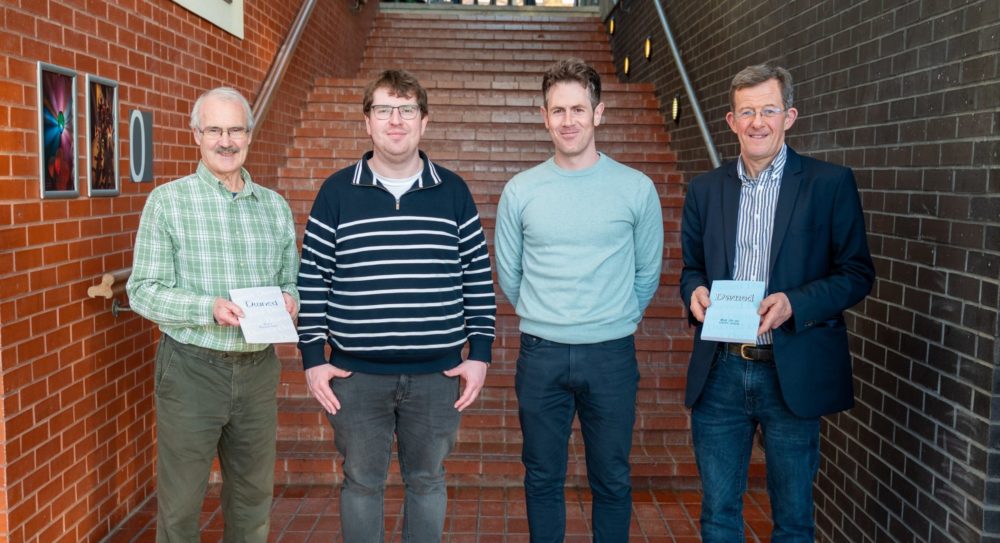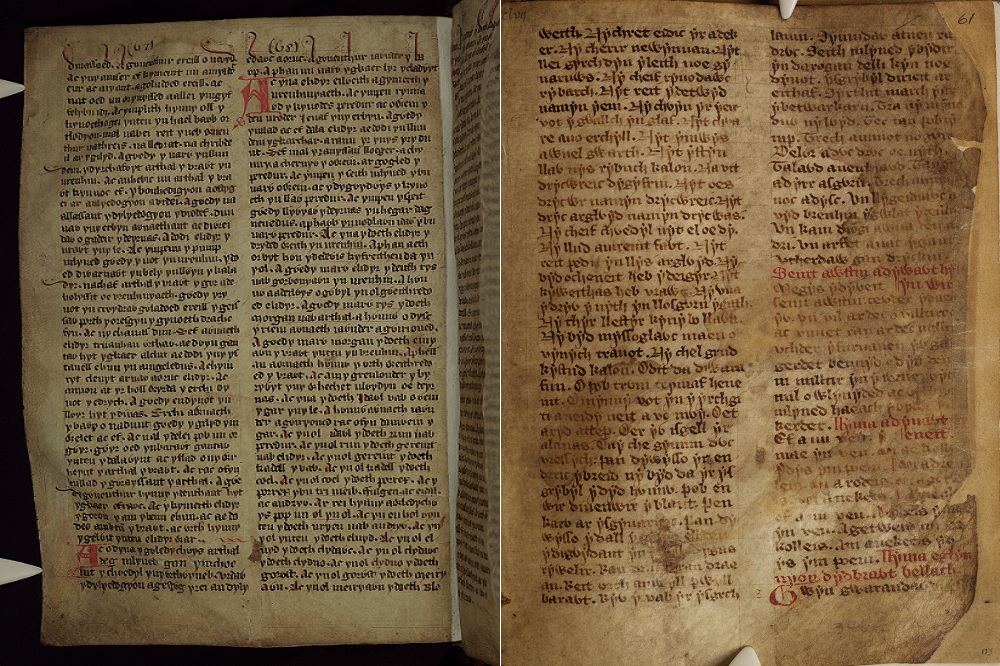Journal exploring medieval Wales goes digital

An academic journal exploring the history and literature of medieval Wales is turning over a new leaf with the launch of a dedicated website.
Thirty years since it was first published, Dwned is moving from a print to a digital journal, and as part of the changeover, the two editors who have led the publication since 1995 will hand over the reins to two new editors.
Dwned was founded by Dr A. Cynfael Lake and Dr Bleddyn Huws in 1995 when they were colleagues in the Department of Welsh and Celtic Studies at Aberystwyth University. Although Dr Lake later moved to Swansea University’s Department of Welsh, they both continued to edit the journal.
From now on, the journal will be led by Dr Eurig Salisbury – poet, author and lecturer in the Department of Welsh and Celtic Studies at Aberystwyth University – and Dr Gruffudd Antur, poet and research fellow at the University of Wales Centre for Advanced Welsh and Celtic Studies in Aberystwyth.
Importance
Over the years, 167 items have been published between the covers of Dwned including articles, reviews and notes, with contributions from 67 different authors – including prominent names in the field as well as young scholars given the opportunity to publish the findings of their research for the first time.

As he prepared to hand over the editorial reins, Dr Bleddyn Huws from Aberystwyth University said: “As co-editors for almost thirty years, Cynfael and I are proud that people recognise Dwned as a journal which has made an important contribution to scholarship in the field of late medieval Welsh poetry.
“A number of incisive and progressive articles appeared between its covers, and we would like to thank the contributors and the subscribers for their support throughout the years. It is time for us as editors to hand over the reins to a younger generation of scholars and we are confident that publishing the journal on the web will attract a generation of new readers.
“Apart from receiving initial funding from Aberystwyth University’s David Hughes Parry Committee and Swansea University’s Henry Lewis Memorial Fund to establish it, the journal did not have to depend on funding from the public purse. Each issue managed to pay for itself, through the support and loyalty of our subscribers.”
A new chapter
Dr Eurig Salisbury from Aberystwyth University said: ”Dwned has been an absolute gem of a journal for anyone interested in the history and literature of medieval Wales and it is a great privilege for Gruffudd Antur and myself to co-lead the journal at the start of an exciting new chapter in its history.”

A special event was held in the Parry-Williams Building at Aberystwyth University on Wednesday 5 February to celebrate the publication of the final print edition of Dwned and to welcome the journal in its new format.
The dwned.cymru website will fully launch later this year.
Support our Nation today
For the price of a cup of coffee a month you can help us create an independent, not-for-profit, national news service for the people of Wales, by the people of Wales.






Sut alla i danysgrifio?
Not clear if ‘Dwned’ is about mediaeval Welsh poetry or mediaeval Wales more generally. I suspect its emphasis is poetry going by the named editors.
Also my field is mediaeval Welsh prose and I’ve not heard of it before. That means none of the articles about the prose texts are in it. (Just checked my enormous bibliogarphy and no ‘Dwned’ there.)
Would welcome clarification. If they do have articles on prose texts I should like to know.
It’s entirely in Welsh. They’ve had some important articles, including editions of unpublished material. It’s a really obscure journal.
Nothing obscure about the journal. Anyone working seriously on medieval Welsh literature will have heard of it.
If even people working seriously on medieval Welsh literature might only have heard of it, surely that’s obscure by definition. Compare it to CMCS, which has a full table of contents available online, with a subscription page and is available to independent scholars for £5 an issue.
Dwned has some brilliant material in it and I was really pleased to have discovered it last year and to follow up some questions I had with the author of the article.